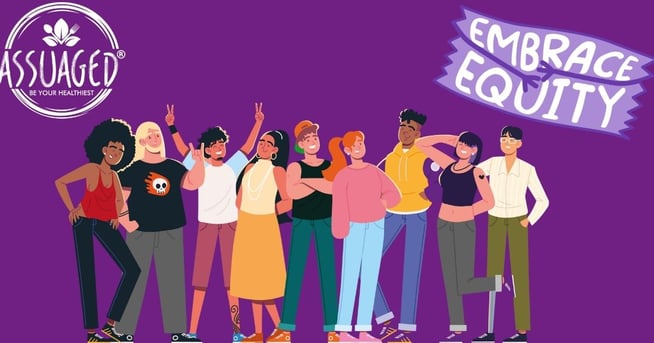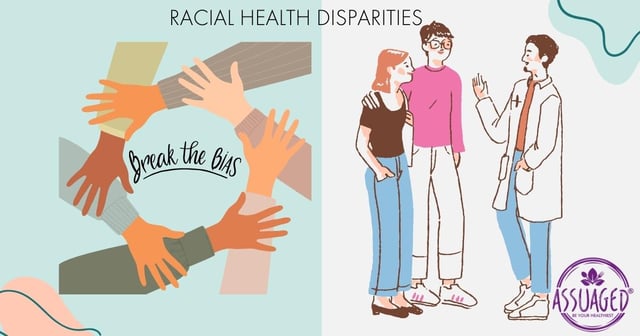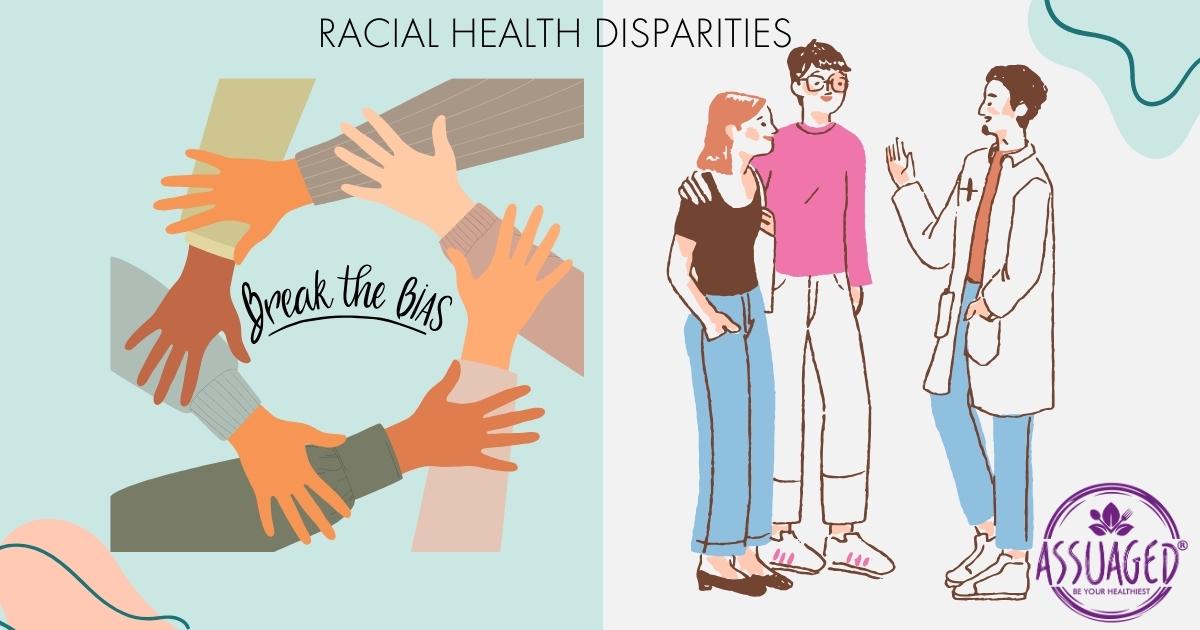What Are Racial Health Disparities?
To put this term in simple words, you should know that these barriers that minorities face affect their ability to reach optimal health and/or healthcare. Health disparities are a problem because the people who are harmed often can't get the care they need or afford health insurance [7].
How does discrimination connect to health disparities?
Discrimination against minority groups is a result of harmful racial stereotypes [1]. A stereotype is a belief someone has about a group of people. These stereotypes can lead to consequences for these groups. In health care, racial disparities may also consist of other factors such as the location and distribution of medical resources, a person’s economic status, and trust, knowledge, and familiarity with the medical system. Some groups of people may have limited access to medical care due to factors such as employment. Whether it be unemployment or underrepresentation in good-paying jobs, although those factors affect medical care, non-dominant racial groups (Hispanic/Latino, African American/Black) have been treated less well in society's most important organizations, either by law or by tradition; this includes Medicare[1] .
Does the government do anything to protect people from abuse in health care or help close the gaps?
Title Vi of the Civil Rights Act of 1964
-
- The Civil Rights Act has a section that states that discrimination is prohibited in certain healthcare services. [2] Programs for healthcare that receive federal support are subject to Title VI. Medicaid and Medicare are included in this [2].
- Equal access is guaranteed, and the Civil Rights Act is upheld by the Office for Civil Rights (OCR) [2].
- As was already said, work affects how easy it is to get medical care. Title VII of the Civil Rights Act of 1964 said that companies couldn't fire, refuse to hire, or promote someone because of their race or change their pay or working conditions in any other way [1].
- Racial and Ethnic Approaches to Community Health (REACH) is a nationwide program that aims to reduce health disparities between racial and ethnic groups by running programs that are sensitive to different cultures[6].
- Promotores and promotoras run the REACH Promotora Community Coalition, which is made up of community members and agencies that want to end health disparities in the Rio Grande Valley. They fight for programs in their areas that raise awareness, teach, and help people with diabetes take care of themselves[6].
- The Office of Minority Health wants to make racial and ethnic minority groups healthier by creating health policies and programs to help eliminate health gaps [8].
Resources available:
- Latinx Therapy is a directory of Latinx private practice therapists.
- California offers Medicaid health insurance for those who qualify
- Free and Affordable health care clinics in California.
- Good Rx help finds cheaper prescription medication
- VitaCosthelps you find vitamins, supplements, healthy foods, and other things for less money.
- U.S Food and Drug Administration provides resources on minority health and health equity.
Alternatives to health care:
Alternatives to healthcare come in several forms. The types fall into the following categories:
- "Complementary" treatments are administered in addition to normal medical procedures [4]
- "Integrative" techniques combine several methods
- "Alternative" treatments are administered in lieu of traditional medical procedures [4].
Some examples of complementary and alternative treatments:
Alternative treatments
- Acupuncture: Acupressure is a way to treat pain by applying pressure to energy lines in the body with needles. The goal is to balance the flow of energy[3].
- Massages: When you get a massage, soft tissues like muscles, tendons, and ligaments are moved around to relieve pain and stress [3].
- Aromatherapy: To help the body heal, plant roots, leaves, seeds, or flowers can be used to get essential oils[3].
- Yoga: posture and breathing exercises, deep relaxation, and meditation are some of the methods that can help you deal with your condition and ease its symptoms[3].
-
-
-
- Vitamins: Foods and animals both have nutrients that come from vitamins. People may get all the vitamins they need if they eat a range of foods, such as whole grains, fruits, vegetables, dairy, nuts, seeds, eggs, and meats. Others, like those who diet a lot, skip meals, or eat little, may benefit from vitamins (but should talk to their doctor first).[5]
- Herbal remedies: Plant-based medicine is another name for herbal treatments. Herbal remedies can be considered supplements and are readily available over the counter. The current body of evidence indicates that herbal medicines are quite safe [9].
-
-

Choosing a healthy plant-based and vegan diet is most beneficial when it comes to:

-
Higher levels of energy;
-
Improved sleep;
-
Aids in energy and overall happiness;
-
Provides a sense of comfort and relief;
-
Could prevent major diseases such as obesity and diabetes;
-
Accomplish weight-loss and management; and
-
Improves mental and cognitive functioning.
There are really no excuses not to try healthier habits in your everyday life. If you are a man or woman looking for specific benefits of adopting healthier habits or just want to know about the general healing properties of herbs. Please remember to comment or post any health questions, or contact us directly!
Also, feel free to share any of your favorite recipes to make and share it with the Assuaged community on our ➡️ Share A Recipe ⬅️ page!

















